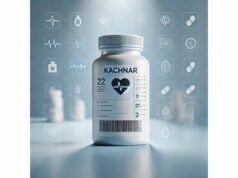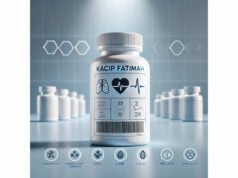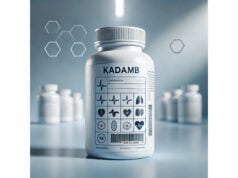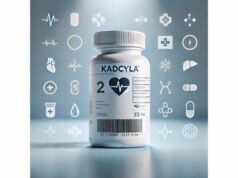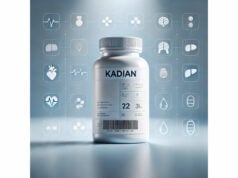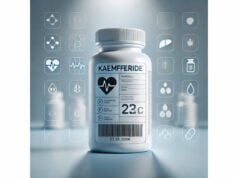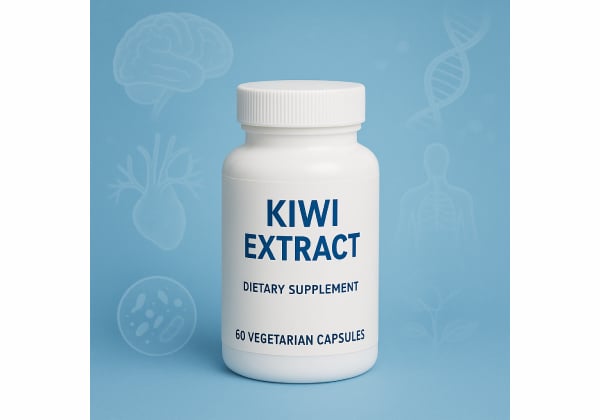
Kiwi extract concentrates the bioactive compounds of kiwifruit (Actinidia species) into a convenient capsule or powder. It is typically standardized for actinidin (a natural protease enzyme), fiber-derived components, and polyphenols that together support gentle digestion, bowel regularity, and antioxidant protection. Beyond the gut, kiwi’s vitamin C and flavonoids contribute to immune and cardiometabolic health. Compared with whole fruit, a quality extract offers consistent potency, fewer sugars, and simpler dosing—useful for people who want the digestive benefits of kiwifruit without changing their diet. At the same time, kiwi is a well-known allergen, and extracts are not appropriate for everyone. This guide explains what kiwi extract is, how it works, the best-supported uses, typical dosage strategies, safety considerations, and what to look for on labels so you can decide whether it fits your goals.
Quick Overview
- Supports bowel regularity and softer stools; digestive enzyme actinidin helps protein breakdown.
- May modestly benefit cholesterol profiles and oxidative stress based on emerging evidence.
- Typical adult dosage: 300–1,200 mg/day standardized kiwi extract; or 575 mg twice daily for 4 weeks, then 575 mg daily.
- Safety caveat: kiwi is a common allergen; stop and seek care if oral itching, hives, or wheeze occur.
- Avoid if you have known kiwi or latex–fruit allergy, or if your clinician has advised you to restrict high-potassium plant products.
Table of Contents
- What is kiwi extract?
- Does it really help constipation?
- How to use and dosage
- Other potential benefits
- Side effects, risks, and precautions
- Quality, labels, and storage tips
- Evidence in brief
What is kiwi extract?
Kiwi extract is a concentrated preparation derived from the flesh (and sometimes peel) of Actinidia deliciosa or A. chinensis. Manufacturers generally use low-temperature drying and water or ethanol extraction to preserve enzymes and polyphenols. You will see several types on labels:
- Actinidin-rich enzyme extracts. These are formulated to deliver a consistent amount of actinidin—the protease that helps digest dietary proteins and may influence gastric emptying.
- Whole-fruit powders. Milled, dried kiwifruit that retain fiber fragments, polyphenols, and vitamin C but with less active enzyme than dedicated actinidin extracts.
- Standardized polyphenol extracts. Target flavonoids and other antioxidants with modest enzyme content; sometimes blended with prebiotics.
Key constituents include vitamin C, fiber-derived oligosaccharides, flavonoids (e.g., quercetin glycosides), carotenoids (more pronounced in gold varieties), and minerals like potassium. While whole kiwifruit are naturally high in vitamin C, extracts vary widely: enzyme-focused products may contain little vitamin C, whereas whole-fruit powders can deliver meaningful amounts per serving.
How it works (digestive focus).
Actinidin aids protein breakdown into peptides, potentially reducing feelings of heaviness after meals. Kiwi fiber and oligosaccharides act as mild prebiotics that support stool hydration and microbiome diversity. Polyphenols add local antioxidant effects in the gut lumen.
Why choose extract over fruit?
- Predictable dosing of actinidin or fiber actives.
- Lower sugar load vs. eating multiple fruits daily.
- Convenient for travel or when kiwifruit is out of season.
When fruit may be better.
Whole kiwifruit provide water, intact fiber matrices, and a broad nutrient package (notably vitamin C). For many people with constipation, 2–3 kiwifruit per day is a proven, food-first approach.
Does it really help constipation?
Short answer: Yes, evidence supports kiwifruit and certain kiwi extracts for easing constipation and improving stool form, including in constipation-predominant irritable bowel syndrome (IBS-C). The strength of evidence is highest for whole-fruit intake, with increasingly robust data for standardized extracts.
What the research shows (plain English):
- Kiwifruit extract in IBS-C. A multicenter, double-blind, placebo-controlled 8-week trial in adults with IBS-C used a step-down dosing design: 575 mg twice daily for 4 weeks, then 575 mg once daily for 4 weeks. Compared with placebo, more participants on the extract achieved improvements in spontaneous bowel movements, Bristol Stool Score, and abdominal pain. A strict combined endpoint for the entire sample was not met, but people with more severe baseline pain benefited notably. This pattern—clear gains in key secondary outcomes with a nuanced primary endpoint—often means the product helps core symptoms for many, while composite definitions can be harder to meet.
- Kiwifruit extract (actinidin-containing) in functional constipation. Earlier double-blind work with an actinidin-rich extract (often branded for regularity) reported higher defecation frequency and improved stool consistency vs placebo over several weeks, with good tolerability.
- Whole kiwifruit (food-first). Randomized trials in adults with chronic constipation show that 2 green kiwifruit/day or 2 gold kiwifruit/day can increase bowel movement frequency and soften stools comparably to common fiber supplements. For some, the fruit is as effective as psyllium while being easier to incorporate into meals.
Why it may work:
- Actinidin helps protein digestion and may modestly speed gastric emptying, decreasing upper-GI heaviness.
- Kiwi fiber fragments and prebiotic oligosaccharides increase stool water content, gently bulking and softening stools.
- Polyphenols can influence gut sensory signaling and microbial metabolites relevant to bowel habits.
Who tends to benefit most:
- Adults with mild-to-moderate constipation or IBS-C.
- People who tolerate fruit but prefer a lower-sugar option (extract) or who cannot consistently find ripe kiwifruit.
- Those who experience heaviness after high-protein meals (enzyme-forward extracts).
What to expect:
- On extract: improvements often begin within 1–2 weeks, with fuller effects by 4–8 weeks.
- On fruit: changes may appear within 1–2 weeks of daily intake.
- The effect is gentle, not a stimulant laxative. Overly loose stools are uncommon at standard doses.
How to use and dosage
Standard extract dosing (adults):
- General range: 300–1,200 mg/day in divided doses, with or without food (check product directions).
- Evidence-based schedule seen in trials: 575 mg twice daily for 4 weeks, then 575 mg once daily for maintenance.
- Whole-fruit comparison: 2 green or 2 gold kiwifruit per day often achieves similar bowel effects for many individuals.
Timing:
- For digestive comfort after protein-rich meals, take an enzyme-forward extract 10–20 minutes before or with the meal.
- For bowel regularity, split dosing (morning and evening) can help maintain steady effects.
What to look for on the label:
- Standardization: declared actinidin activity (e.g., activity units per capsule) or polyphenol content (e.g., mg gallic acid equivalents).
- Clinically aligned dose: products delivering ~500–600 mg/serving simplify replication of study protocols.
- Additives: avoid unnecessary laxatives or harsh stimulants if you want a gentle, kiwi-only effect.
Stacking strategies (food-first and supplements):
- Pair kiwi extract with adequate fluids (aim for pale-yellow urine).
- Combine with soluble fiber (e.g., psyllium 3–5 g/day) if stools remain dry; introduce gradually to avoid gas.
- Probiotics (e.g., Bifidobacterium strains) can complement kiwi’s prebiotic fibers for IBS-C symptoms.
- If iron deficient, take iron with a vitamin-C-containing food; whole kiwifruit (especially gold varieties) helps non-heme iron absorption. Extracts may or may not provide meaningful vitamin C—verify on label.
How long to try:
- Give a 4–8 week trial at a consistent daily dose. If helpful, you can continue and consider tapering to the lowest effective dose.
Special situations:
- Low-FODMAP diet: whole kiwifruit are generally low-FODMAP at modest portions; extracts are typically well tolerated but check excipients.
- Diabetes or low-carb plans: extracts offer benefits with minimal sugars versus whole fruit.
Other potential benefits
While the strongest clinical signal is for bowel regularity and digestive comfort, kiwi’s nutrient profile suggests wider benefits:
1) Cardiometabolic markers (early but promising).
Meta-analytic evidence indicates kiwifruit intake may modestly lower LDL cholesterol and improve select lipid ratios. The magnitude is small (single-digit mg/dL reductions), but directionally favorable, and likely driven by fiber, polyphenols, and vitamin C. Kiwi extract products that retain polyphenols and fiber may contribute similarly, although head-to-head trials are limited.
2) Antioxidant defense and immune support.
Kiwifruit—especially gold varieties—are vitamin C-dense and supply flavonoids that regenerate antioxidant capacity. Vitamin C also supports collagen formation, wound healing, and iron absorption. If your extract contains little vitamin C, you won’t see the same immune-adjacent effects as fruit unless it is fortified.
3) Protein digestion and post-meal comfort.
Actinidin aids proteolysis, potentially reducing the sensation of heaviness after large or meat-rich meals. Small trials in healthy adults show improved gastric comfort metrics, and many users report meals feel “lighter” when taking enzyme-forward extracts.
4) Microbiome friendliness.
Kiwi oligosaccharides and fiber fragments act as prebiotics, encouraging beneficial genera that produce short-chain fatty acids. These metabolites can influence motility and visceral sensitivity—relevant for IBS-C.
5) Skin and connective tissue (indirect).
By bolstering vitamin C intake (fruit) and combating oxidative stress (fruit or polyphenol-rich extract), kiwi may indirectly support skin elasticity and recovery from UV exposure. Evidence is suggestive rather than definitive for extracts.
Realistic expectations:
Think of kiwi extract as a gentle, food-derived aid. It is not a pharmaceutical laxative or a lipid-lowering drug. Benefits are incremental, accumulate with daily use, and are best paired with hydration, dietary fiber, and movement.
Side effects, risks, and precautions
Common tolerability:
Most adults tolerate kiwi extracts well. Mild gas or bloating can occur during the first week, especially when combined with new fiber supplements. Gradual titration and adequate fluids help.
Allergy and cross-reactivity:
Kiwi is a priority allergen in many countries. Reactions range from oral itch to anaphylaxis. Cross-reactivity occurs with latex and certain pollens (“latex–fruit syndrome”), so people with latex allergy should avoid kiwi products unless cleared by an allergist. Extracts may still provoke reactions, even without the fruit’s visible pulp.
Who should avoid or get medical advice first:
- Known kiwi allergy or prior latex–fruit syndrome.
- Children, pregnancy, or lactation: safety data for extracts are limited—use only with clinician guidance.
- Advanced kidney disease: although extracts contain far less potassium than whole fruit, consult your renal team before use.
- Anticoagulation or major GI disease: discuss any new supplement, especially if you’ve had bowel surgery, strictures, or active IBD.
Interactions:
- Iron: whole kiwifruit can enhance iron absorption (useful if iron deficient); not a harmful interaction, but timing with iron therapy can amplify effects.
- Enzyme products: combining multiple digestive enzyme supplements can lead to loose stools; introduce one at a time.
When to stop and seek help:
- Oral tingling, hives, wheeze, facial swelling, or trouble breathing after use.
- Persistent abdominal pain, blood in stool, or unexplained weight loss—these warrant medical evaluation regardless of supplement use.
Quality, labels, and storage tips
Choose evidence-aligned products:
- Dose clarity: per-capsule milligrams should allow ~500–600 mg per serving if you wish to mirror trial protocols.
- Standardization: look for actinidin activity (e.g., units per capsule) or polyphenol content. Some regulated brands disclose a minimum enzyme activity verified by in-house or third-party assays.
- Additives: avoid added senna, cascara, or sugar alcohols if you want kiwi’s gentle mechanism only.
Third-party testing:
Select supplements that undergo independent assays for potency and contaminants (heavy metals, microbes). Certifications from reputable labs add confidence.
Form factor:
- Capsules are most common and easiest for split dosing.
- Powders mix into smoothies or yogurt; check if heat processing may have reduced enzyme activity.
- Chews/gummies are convenient but can add unnecessary sugars.
Storage:
Keep cool, dry, and out of sunlight. Enzymes are sensitive to heat and humidity; reseal desiccants promptly. Discard if the product develops off-odors or clumps.
Sustainability notes:
Some suppliers source fruit from graded “seconds” that would otherwise go to waste—worth seeking if environmental impact matters to you.
Evidence in brief
- IBS-C, 8-week RCT: proprietary kiwi extract improved bowel movement frequency, stool form, and abdominal pain vs placebo; a strict composite endpoint was met in those with more severe baseline pain. Dose used: 575 mg twice daily then 575 mg daily.
- Functional constipation, double-blind trial: actinidin-rich extract increased defecation frequency and improved stool scores, with good tolerability.
- Whole kiwifruit trials: 2 green or 2 gold kiwifruit/day improved constipation outcomes in adults and compared favorably with psyllium in some measures.
- Reviews and overviews: kiwifruit provide high vitamin C, fiber, and polyphenols; potential benefits span digestion, lipid markers, and oxidative stress.
- Allergy: documented kiwi allergy in children and adults, with recognized latex cross-reactivity; extracts are not exempt from risk.
References
- Randomized, Placebo-Controlled, Double-Blind 8-Week Trial on the Efficacy of a Proprietary Kiwifruit Extract on Constipation-Predominant Irritable Bowel Syndrome 2025 (RCT)
- Two Gold Kiwifruit Daily for Effective Treatment of Constipation in Adults—A Randomized Clinical Trial 2022 (RCT)
- Kiwifruit and Extracts Improve Constipation Symptoms: A Systematic Review and Meta-Analysis 2022 (Systematic Review)
- The Nutritional and Health Attributes of Kiwifruit: A Review 2018 (Review)
- Kiwifruit’s Allergy in Children: What Do We Know? 2023 (Review)
Disclaimer
This information is for education only and is not a substitute for personalized medical advice, diagnosis, or treatment. Do not start, stop, or change any medication or supplement without consulting your qualified healthcare professional, especially if you are pregnant or breastfeeding, have chronic medical conditions, or have a history of food or latex allergy. If you experience symptoms of an allergic reaction after using kiwi extract, seek urgent medical care.
If you found this guide helpful, please consider sharing it with friends on Facebook, X (formerly Twitter), or your preferred platform, and follow us for more evidence-based wellness articles. Your support helps us continue creating high-quality resources.

